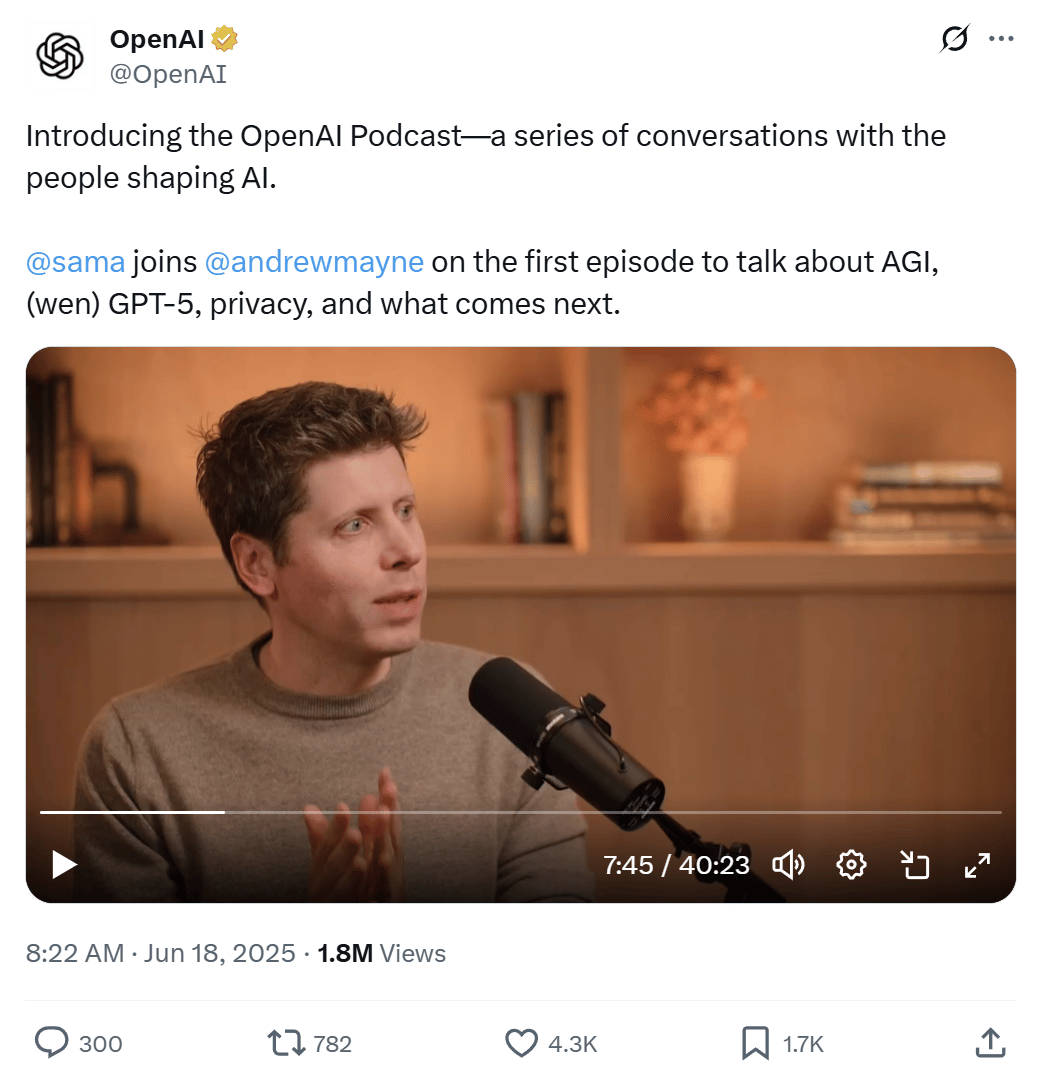
Image Source: ChatGPT-4o
Sam Altman Confirms GPT-5 Coming This Summer, Cautions on Ads in ChatGPT
OpenAI CEO Sam Altman announced that the company plans to release GPT-5 this summer, marking a significant step forward in its generative AI technology. Speaking on a new company podcast, Altman did not provide a specific release date but indicated the upgrade will be substantial.
Early feedback from testers supports that claim. According to Business Insider, GPT-5 is considered “materially better” than its predecessor, GPT-4, setting expectations high for its impact in both consumer and enterprise applications.
This anticipated launch comes as OpenAI works to maintain its lead in a competitive AI landscape. A significant portion of the company’s revenue currently comes from enterprise clients using enhanced versions of ChatGPT, and GPT-5 is expected to play a key role in sustaining that growth.
Open to Ads—With Clear Boundaries
Altman also addressed the possibility of introducing advertising into ChatGPT, a move that could reshape the platform’s monetization model. While he said he’s “not totally against” the idea, he cautioned that it would require careful design to avoid compromising user trust.
“Modifying the model’s output based on who pays for the ad would be a trust-destroying moment,” Altman said, stressing that ads should not influence the chatbot’s responses.
Instead, he suggested that any advertising should remain outside the model’s output stream—potentially in areas like a sidebar or footer—though no specific formats or placements were detailed.
“The burden of proof there, I think, would have to be very high,” he added. “And it would have to feel really useful to users and really clear that it was not messing with the LLM’s output.”
Legal and Privacy Pressures Intensify
As OpenAI advances its technology and explores new business models, it is also navigating legal and regulatory challenges—particularly around user privacy.
In an ongoing copyright lawsuit brought by The New York Times, a court has ordered OpenAI to preserve all ChatGPT output logs, even if users have requested deletion or existing privacy laws would normally require it. Currently, OpenAI retains deleted chats for 30 days before erasure, and the company plans to appeal the ruling.
Altman criticized the court’s directive and the plaintiff’s demands. “It’s a crazy overreach of The New York Times to ask that,” he said, while reaffirming the company’s stance on data protection: “Privacy needs to be the core principle of using AI.”
What This Means
OpenAI is navigating a pivotal moment—scaling new technological heights with GPT-5 while balancing monetization pressures and intensifying scrutiny. Altman’s cautious stance on advertising reflects broader concerns about trust and transparency in AI systems, particularly as they become more deeply embedded in everyday life.
Other AI companies, including Perplexity, have already introduced ads in non-intrusive formats, such as sidebar placements. That precedent suggests there may be viable ways to monetize AI tools without compromising their core functionality or credibility. But for OpenAI, which faces intense public attention and legal pressure, any move in that direction will likely be closely watched.
The company’s legal challenges also underscore a shifting landscape for data governance in AI. As GPT-5 approaches launch, how OpenAI handles both innovation and accountability could help set industry standards—or provoke new rounds of debate.
As the next generation of AI tools emerges, the choices companies make now—about transparency, privacy, and profit—will shape not just user experience, but public trust in the technology itself.
Editor’s Note: This article was created by Alicia Shapiro, CMO of AiNews.com, with writing, image, and idea-generation support from ChatGPT, an AI assistant. However, the final perspective and editorial choices are solely Alicia Shapiro’s. Special thanks to ChatGPT for assistance with research and editorial support in crafting this article.

